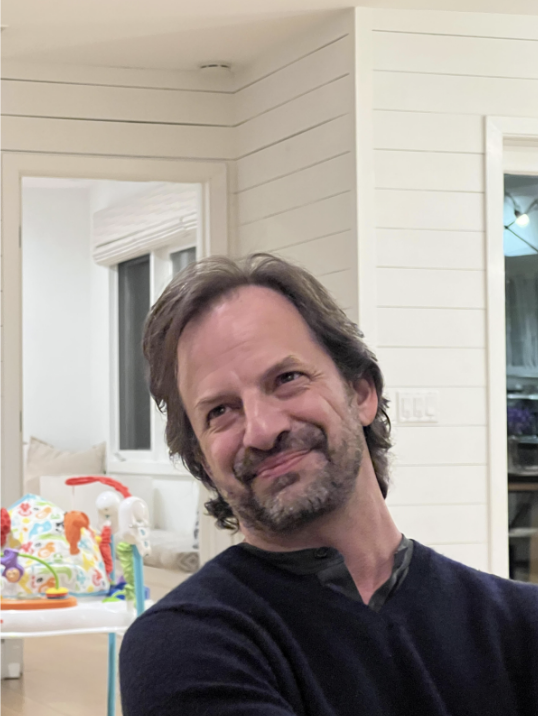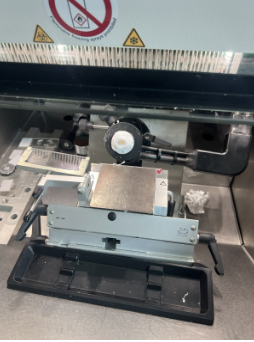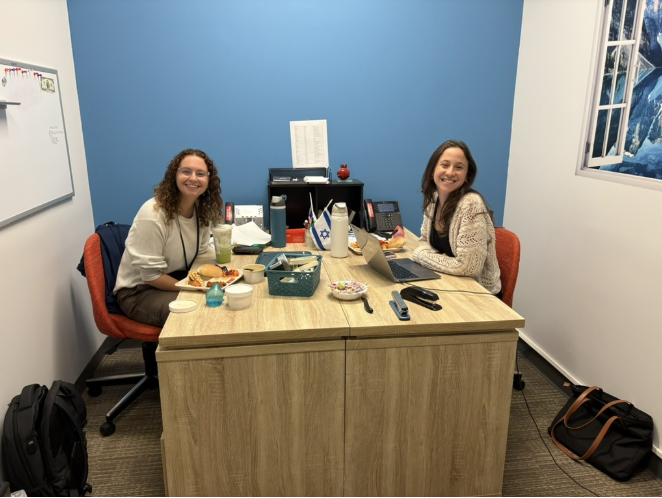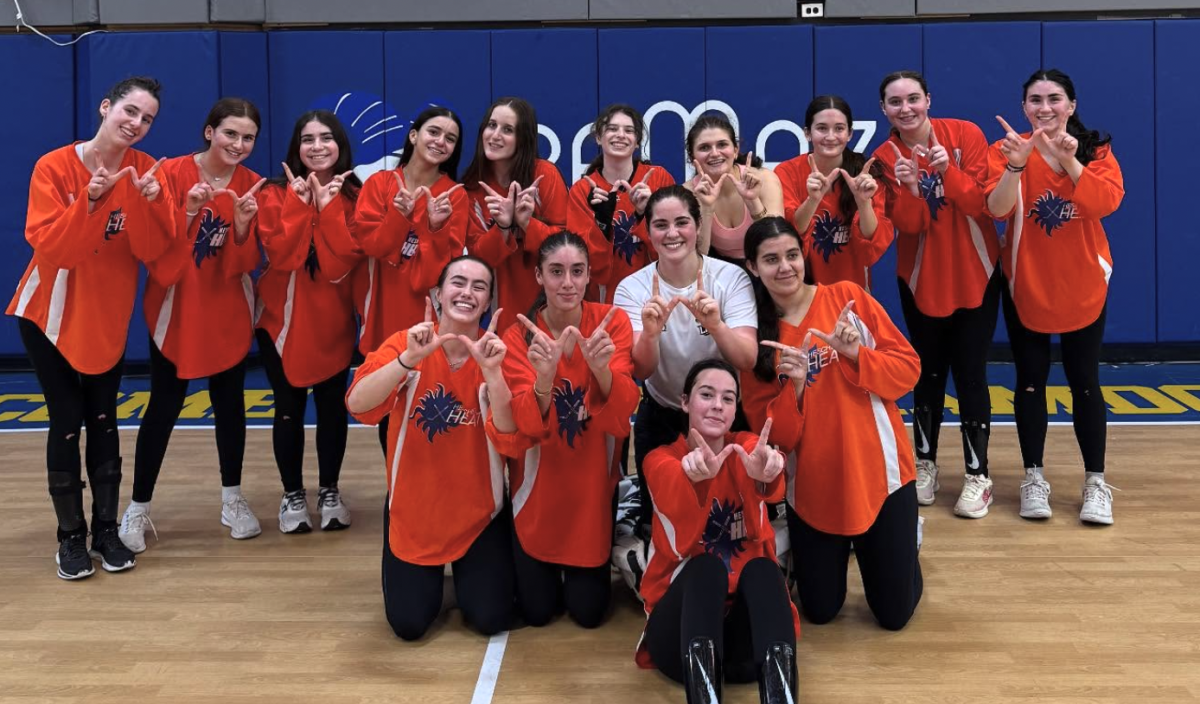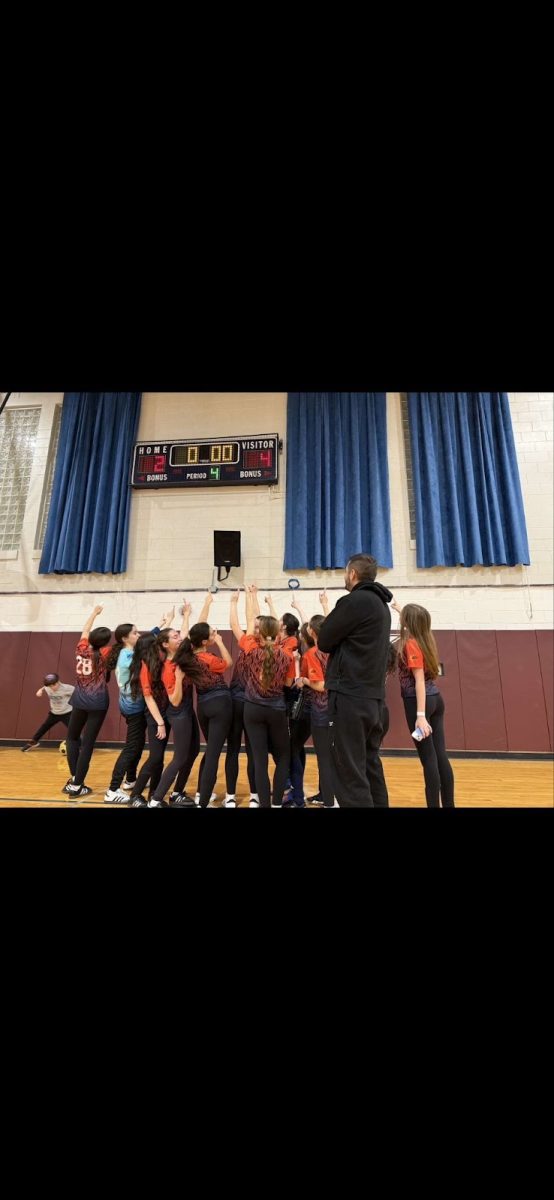As part of the Edy Rauch Artist-in-Residence Program, on May 11, Pulitzer Prize winning poet Sharon Olds spoke to Heschel high school students and faculty in her first poetry reading to a high school audience since the Covid pandemic. Olds’ moving performance exuded a power and solemnity that elicited a standing ovation from the Heschel crowd. Helios had the privilege of interviewing Olds after she read poetry to the high school. The full version of this interview is on the Heschel Helios website at Helios.heschel.org. Below is an excerpted version.
Serena
When you were a teenager, what were you like? Were you shy? Were you outspoken?
Sharon Olds
I think I was both shy and outspoken, both an introvert and an extrovert. What I was saying today about finding close friends– that was a very important thing for me as a teenager. Around ninth and tenth [grade], I started finding friends. When I was comfortable, I was very talkative.
Serena
I relate to that. What was writing like for you in high school?
Sharon Olds
I attended public school in California through the tenth grade. On my own, I wrote poems and stories, I drew, and I danced. There were lots of arts that were interesting for me. But when I got to boarding school [in eleventh grade], there was a creative writing class; I went right to it. That became something that meant a lot to me.
Serena
Did you always know you wanted to be a writer, or did you think writing was merely a hobby and something to share with friends?
Sharon Olds
Although I secretly hoped that I could be a good writer, I had no confidence that I could be. I’ve always been a person who’s very aware of not understanding things, which I realized is kind of a form of intelligence. But it felt like ignorance; I think I assumed that other people understood more than I did.
Serena
How did you deal with the lack of confidence that you just described?
Sharon Olds
I was self-conscious. My neurosis showed on my face– I had an expressive face. And looking back at those pictures now, I was worried. Also, I was in a very dysfunctional family. What I worried about most was whether I could ever fit in and be a productive member of society. I think that very often, kids in dysfunctional families, who see their whole family suffer, believe that they will suffer forever. Of course, most don’t. But it’s hard to look beyond. I wasn’t depressed, I was a little anxious, and I was fearful. But at the same time, I went to Girl Scout camp, sleeping outdoors in these nests made of pine needles and cooking outside. So it wasn’t a life without pleasure. It was just I worried a lot. I worried about people’s perceptions.
Serena
What would you say to someone in high school who’s dealing with a difficult family situation?
Sharon Olds
Take good care of yourself. Take your vitamins. Don’t take dope. Dance, exercise, run, play a sport. Find friends. When I was in college, there were a lot of drugs around– that’s how I got to find out pretty young that they’re much too strong for someone with a mind like mine. And have hope, have hope. It’s going to get better.
Serena
How does dance influence the tone in your poetry?
Sharon Olds
Do you know that in some languages, there’s only one word for dance and one word for music– and they’re the same word? So one doesn’t think of dance without assuming there’s music to it. Now, that amazes me, and I think it’s very true. I move a lot when I’m talking. It helps me talk. And they used to say that memories were stored in the muscles. Many of my poems came to me while I was dancing because I used to dance every day.

